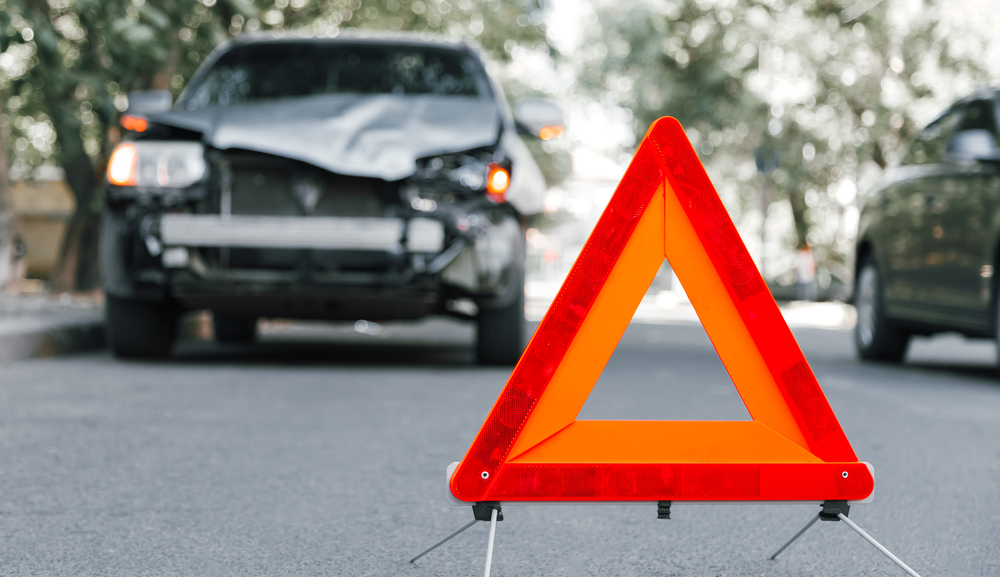Car accidents can be traumatic experiences both physically and financially. The aftermath often involves sorting through insurance claims to cover property damage, medical expenses, and lost income.
People purchase car insurance hoping that, if they are ever in an accident, the insurance provider will take care of the financial aspect. You may, however, have many questions, such as what happens if your damages exceed the limits of your insurance policy, or, if the other driver was at fault, what happens if the costs exceed the protection their insurance provides. You may feel like you face a financial nightmare.
After any accident, especially one where the damages exceed the protection the insurance company offers, hiring a Phoenix car accident lawyer can make it much easier to navigate the claim process and get the compensation you deserve. You may have unexpected options for securing payment or getting the support you need following a car accident, even when the driver that hit you does not have adequate insurance coverage.
Understanding Insurance Limits

An insurance limit is the maximum amount an insurance company will pay toward a covered claim. Most insurance policies lay out the damages they will cover, often based on what the policyholder pays for. If the damage from an accident exceeds this limit, the insured party is responsible for the remaining costs. Policy limits vary depending on the insurance package you choose.
Common types of car insurance limits include per person bodily injury, which covers the damages a person suffers due to injuries from an accident; per accident bodily injury, which limits the maximum compensation the insurance company will pay out when multiple people suffer injuries in the same accident; and property damage, which covers damage to your vehicle or other property. Separate limits can make it easier to obtain compensation for both injuries and damaged property resulting from the accident.
Knowing these limits can prepare you for possible outcomes following an accident and allow you to understand the legal and financial ramifications.
After a car accident, have a lawyer review both your and the other driver's car insurance policies, especially if you have suffered substantial damages. Your lawyer can do more than provide deeper insights into what coverage you have. They may also offer more information about any exceptions to your policy that could increase the compensation you can recover.
If your expenses exceed these limits, hire a lawyer for advice on what to do next.
What Happens When a Car Accident Exceeds Insurance Limits?
When a car accident exceeds insurance limits, the financial situation can be stressful and daunting. If, for instance, the other party has a limit of $50,000 for bodily injury liability insurance and your medical bills amount to $60,000, you must pay the extra $10,000 out of your pocket.
You may sue the other driver for the remaining amount. If they don't have the means to pay, this could lead to income garnishment or property liens. You may not know how to get fair coverage for your damages to prevent you from having to pay for those losses out of pocket. This can mean substantial financial strain and losses over time, especially if you do not have other coverage to pick up the damages.
When a car accident leads to damages that exceed the limit of insurance coverage, you may find yourself in a challenging situation.
Several factors play a part in maximizing your chances of recovering the funds you need. The biggest one is hiring a strong car accident lawyer.
The Role of a Car Accident Lawyer
Car accident lawyers play a crucial role when a car accident exceeds insurance limits. They can guide you effectively through the labyrinth of insurance claim procedures and work towards securing the maximum compensation possible to cover your damages.
Skilled lawyers in the domain of personal injury law are familiar with the tactics that insurance companies often use to reduce payouts. They can negotiate on your behalf, ensure you don't unwittingly accept any lowball settlement offers, and make sure you have a clear grasp of your rights. The lawyer will also evaluate the coverage both you and the other driver have under your respective insurance policies.
Negotiation With Insurance Companies
Negotiating with insurance companies can often be daunting, especially as they have teams of experts whose sole purpose is to minimize the company's payouts.
Successful negotiation involves building a strong case. This typically involves documenting all relevant information about the accident, gathering evidence of damages you incurred, and presenting your case to the insurer. Your lawyer can establish and fight for the compensation you deserve after an accident involving a driver without adequate insurance.
A Lawsuit Against the At-fault Driver
If negotiations with the insurance company fail to yield the desired results, you have the option to file a lawsuit against the at-fault driver. As this process can be time-consuming and complex, having a personal injury lawyer on your side can be invaluable. Aside from explaining the legal process, they can also formulate an effective strategy and represent your interests in court.
Other Options for Compensation
When the damages from a car accident exceed the insurance limits, it may seem like a hopeless situation. There are, however, other routes for compensation that victims can explore. These options can provide additional financial help and ensure that victims do not bear the burden of excessive costs due to someone else's negligence.
Uninsured and Underinsured Motorist Coverage
Uninsured and underinsured motorist coverage is part of your insurance policy that can be beneficial when dealing with a car accident that exceeds insurance limits.
Uninsured motorist coverage kicks in when the at-fault driver does not have insurance, while underinsured motorist coverage applies when the at-fault driver's insurance is insufficient to cover all the damages.
If you have this coverage, it can provide the additional financial assistance necessary to cover the excessive costs. Drivers often choose to carry underinsured motorist coverage to cover the cost of repairs to their vehicles, especially if they have expensive vehicles that exceed the value that minimum insurance coverage in the state offers.
Personal Injury Protection and Medical Payments
Personal Injury Protection (PIP) and Medical Payments (MedPay) are two other types of coverage you might have on your insurance policy. They are no-fault coverages that provide financial support regardless of who caused your accident.
PIP can cover a range of costs, including medical expenses, lost income, and funeral costs, regardless of fault. MedPay, on the other hand, specifically covers medical and funeral expenses.
You can use PIP or MedPay coverage immediately after your accident without having to wait for the insurance companies to decide on your case or process your claim. You will typically move forward with your injury claim after a car accident only when the cost to treat your injuries exceeds the protection your PIP coverage provides.
Health Insurance
If you have a health insurance policy, it can help cover medical costs that your auto insurance doesn't cover. Although health insurance usually comes into play after other insurance coverages, it can provide a significant financial cushion when dealing with the aftermath of a car accident.
Your health insurance coverage can provide vital assistance with many of the costs of dealing with long-term injuries requiring ongoing medical care.
Suppose, for example, you suffer a spinal cord injury or amputation because of your car accident. While you may turn to MedPay or PIP insurance to cover initial treatment costs and file for compensation through the liable party's insurance company, you may ultimately use your health insurance to cover the cost of treatment for ongoing medical needs.
Umbrella Policies
An umbrella policy is another insurance option that can provide coverage when the damages from a car accident exceed insurance limits. These policies offer additional liability coverage above your standard insurance policies, including your auto insurance.
If you have an umbrella policy, it can provide considerable financial relief in scenarios where damages from a motor vehicle accident are extraordinarily high.
Other Liable Parties
You may identify other parties who share liability for your accident, which means you may have the right to file a claim against them, allowing you to secure further compensation.
Imagine, for example, you suffer broken bones that require extensive treatment, including surgery and physical therapy, following an accident involving a driver who was on the clock. Not only do you have the right to seek compensation from the driver's insurance policy but you may also be eligible to pursue compensation through the driver's employer.
A lawyer can evaluate all the conditions that led to your accident and determine all parties that may share liability for your injuries.
Negotiation of Medical Costs
You may negotiate the cost of medical treatment after a serious accident. Many care providers offer sliding-payment-scale options or patient support services that will make it easier for you to pay your bill, but the providers may not automatically give you those options.
A lawyer can also negotiate with your care providers to arrive at a reasonable cost for your treatment, allowing you to manage your finances as effectively as possible in the aftermath of the accident.
Every insurance policy differs. Your lawyer can explain your coverage options and limits before an accident occurs. Hiring a personal injury lawyer or insurance professional can provide clarity and prepare you for the unexpected.
Get Help Navigating a Car Accident Claim That Exceeds Insurance Limits

We have seen that the repercussions of a car accident exceeding insurance limits can be extensive and complex. Such circumstances can feel overwhelming, given the potential financial burden and intricacies of dealing with insurance companies and legal procedures. While it's a scenario nobody wishes to find themselves in, it's best to fully understand your possibilities and options.
Remember that help is at hand if you find yourself in such a predicament. Personal injury lawyers can provide valuable guidance, particularly when negotiating with insurance companies or pursuing a lawsuit against an at-fault driver. A legal professional can navigate the claim process on your behalf and fight for your rights to secure the maximum compensation possible.
Hire a lawyer to learn more about your specific right to compensation in cases where you may not have adequate insurance coverage.